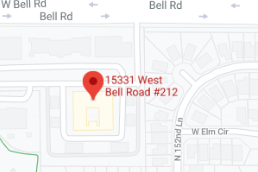What Does a Court-Appointed Guardian for Adults Do in Arizona?

Do you have a loved one whose physical or mental impairment prevents them from being able to make decisions about their living situation, finances, and medical care? If so, you may need to consider setting up a court-appointed guardian for them. In Arizona, a court-appointed guardian manages personal business for another party, called the ward. This may include their living arrangements, education, and medical and psychiatric care. The guardian must make all their decisions in the ward’s best interests.
Court-appointed guardians play a valuable role in Arizona by helping vulnerable people who would otherwise struggle to make important life decisions on their own. Without the help of a guardian, some may be harmed by dishonest people seeking to manipulate them. Others may simply be unable to make necessary decisions about their care.
Table of Contents
Who Is Considered an Incapacitated Person?
Under Arizona law, an incapacitated person is someone who cannot make and communicate responsible decisions for themselves. If a physical or mental impairment interferes with someone’s ability to make decisions about their medical care, psychiatric care, financial affairs, living situation, or education, then they are potentially vulnerable to the traumatic effects of abuse, neglect, or exploitation by others. In some cases, Arizona courts appoint a guardian to manage their affairs. An incapacitated person whose affairs are managed by a guardian is called a ward.
What Are the Different Types of Guardianship in Arizona?
There is more than one type of court-appointed guardian in Arizona. The courts are reluctant to take away the legal rights of any adult without necessity. After all, some adults who cannot make their own financial or medical decisions may still be able to make decisions about their living arrangements or education.
Arizona law requires courts to encourage the ward’s development of “maximum self-reliance and independence.” Courts may do this using the least restrictive legal means available to meet the ward’s needs. Depending on the circumstances, the court may appoint either:
- A limited guardian with clearly defined responsibilities and limitations on those responsibilities
- A general guardian who is responsible for making decisions about every aspect of the ward’s life, including their living situation, medical care, psychiatric care, and education
Whenever possible, the court will appoint a limited guardian with authority over specific decisions, such as medical care or living situations. The court may also choose to appoint a conservator instead of a guardian or grant power of attorney instead of guardianship. The court will only appoint a general guardian if convinced that no other limited guardianship will meet the ward’s needs.
Who Can Serve as a Guardian?
If a court determines that a person is incapacitated and incapable of making their own decisions effectively, it can appoint a guardian under Arizona law. Someone petitioning to become a guardian typically must be over 18, not be incapacitated themselves, and have no criminal record. The guardian may be:
- A spouse
- A guardian nominated by the incapacitated person
- An adult child of the incapacitated person
- A parent or other relative
- A fiduciary chosen by the court
The incapacitated person, someone caring for them, or their nearest relative may file an objection to the appointment. The court must decide whether to approve any guardianship appointment and can do so despite an objection. They will determine whether the person is truly incapacitated and if the proposed guardian is qualified.
Proving the adult cannot make their own decisions will require clear evidence, including medical exams and witness statements. They have the right to an attorney who can defend their rights and interests.
Guardianship is a major responsibility that requires the guardian to act in the ward’s best interests. Only those capable of acting with total integrity and responsibility should accept or be appointed to this role.
What Is the Difference Between a Guardian and a Conservator in Arizona?
The difference between a conservator and a court-appointed guardian in Arizona is that a conservator is responsible for financial decisions only, while a guardian is responsible for any decisions the court has given them authority over. In a limited guardianship, the court clearly defines and limits these decisions, while general guardianship covers all major life decisions. The same person may have both a conservator and a guardian, depending on the court’s decision.
What Are a Court-Appointed Guardian’s Duties?
The duties of a court-appointed guardian for adults in Arizona can include:
- Providing the ward’s living arrangements, including determining whether they will live with family or in an assisted living facility
- Ensuring the ward receives proper medical and psychiatric care
- Making daily life decisions about the ward’s education, social life, and so on
- Managing the ward’s financial assets and investments, if there is no conservator
- Helping the ward meet their needs in the least restrictive way possible
- Acting only in the ward’s best interests while considering their wishes and values
Only a general guardian will make all these decisions for the ward. A limited guardian would be responsible for some of these duties and not others.
Contact an Arizona Guardianship Lawyer
It’s not easy to decide that a loved one needs a guardian to make decisions for them. If you’re in that situation, you deserve the help of a compassionate and knowledgeable Arizona guardianship lawyer who can guide you through the process of appointing a guardian and getting it approved by the court.
Mushkatel, Gobbato, & Kile, P.L.L.C. is proud to serve the entire Phoenix metro area. Our law office is a calm, professional space where you can feel comfortable telling us about your circumstances and getting honest, straightforward advice. Put our 50 years of combined legal experience to work for you when you contact us today about an initial consultation.













